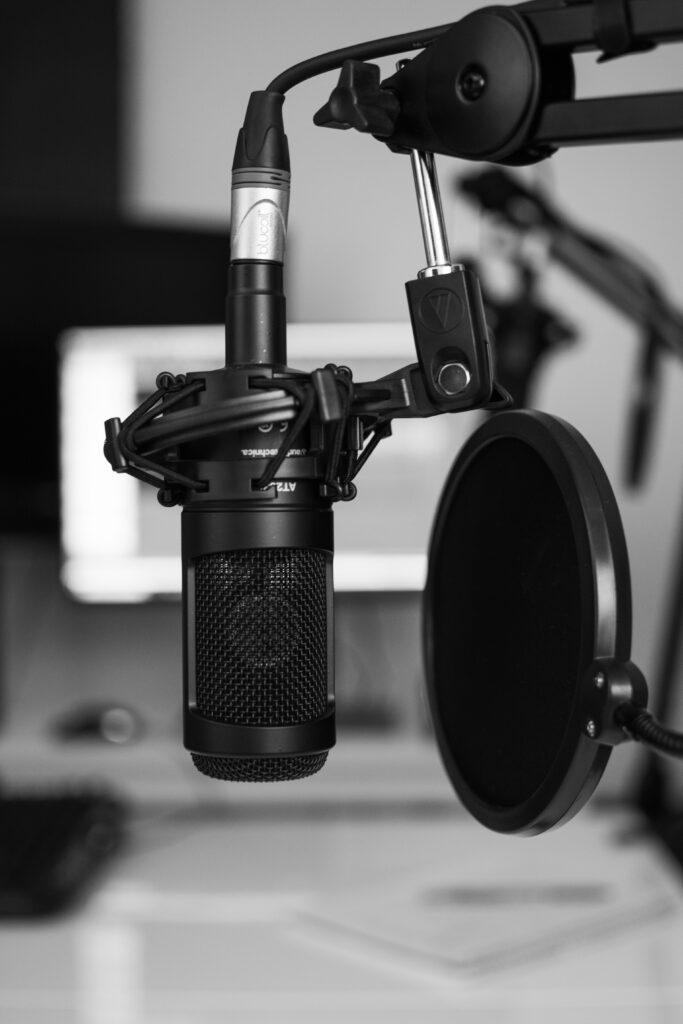
Top 10 Presenter Tips
Over the years I’ve worked with some fantastic talent, these include Clyde 1’s George
Bowie, Hallam FM’s ‘Big John” Harrison, Virgin Radio’s Steve Denyer and BBC Radio Wales’ Jason Mohammad. We’ve listened to hours and hours of output together, and separately, with a clear focus on delivering the BIG thing that radio excels at, its ability to talk one-to-one with each and every listener.
We absolutely need great content BUT with so many more stations and so much new media clamouring for our listeners’ time, we need to fully exploit radio’s unique ability to get really really close to the listener day in day out, and maximise that strength.
To give you a taster, here are my top ten tips:
- Don’t Do A Columbo: make sure you only cut away from an interview, chat or story at the right moment when there’s a strong out. Don’t ‘do a Columbo’ by asking a guest “just one more thing before you go”. So many radio presenters think they have to give value for money. Why?
- Don’t Grandstand: talk directly to one person, don’t talk as if you’re on stage addressing an audience. I regularly hear the following on-air but shouldn’t: “you’re all getting it wrong today”, “keep the messages coming” and “lots of you are getting in touch with us”. You’re not just breaking that amazing bond radio has, you’re smashing it to pieces.
- Shift Patterns: I don’t need to know that you’re “here till eleven o’clock”. If I can stay with you, I will. If I have to go and do something else, you can’t stop me. Just tell me what’s likely to keep me listening for the next twenty minutes or so, whether’s it in your show, or the next.
- Memory Problems: avoid the two words “don’t forget” as in “don’t forget I’ll be back tomorrow at the same time“. It’s so negative! Why is it so important anyway? I’m enjoying listening to you right now, if I’m around at the same time tomorrow I’ll probably listen to you then as well, but I’m not going to make a mental note to do so, there are far more important things in myeline that I need to remember.
- Stop Being So Needy: stop continually asking me to get in touch. Listening to some stations is suffocating. They’re always shouting out phone numbers, text numbers, twitter, Instagram and Facebook IDs and email addresses. Why can’t I just listen? Ease back and let the show breathe. So many calls to action have no outcome and are unlikely to deliver any, so why punt for a reaction so often?
- Why Are You In Love: I hear plenty of “I love that” comments around the music on the radio. It would be so much better to hear what it was about the track you loved, otherwise it sounds so bland and un-convincing. Try highlighting a few of the tracks in the programme and telling me your connection with them.
- Recommendations: with so much choice out there we’re all looking for ideas.That’s why trip advisor is SO successful. When you’re plugging other parts of the output, it’s so much more effective for this to be from delivered by you, rather than by a promo. If I’m enjoying listening to you, I’m more likely try out something else on the radio station you’ve told me to try out.
- Let’s Get Real: you can’t change people’s lifestyles. We have to be realistic about how long people will listen and the fixed points in their life that will take them away. Don’t deliver a vague tease with something “coming up sometime after seven”. If they’re genuinely interested, they need to know exactly when it’s on-air. Teasing ahead should be about the next twenty minutes or so, unless it’s earth-shattering material later in the show. I would also always go into an item by saying what’s coming up after it. Hopefully it’ll be strong enough to keep listeners from re-tuning during something that doesn’t interest them.
- Who Are You: when you meet listeners they always tell you they expected you to be taller, older or have different colour hair. It’s because they’re paining a picture of you in their heads.They need to do that to help build you into their lives. Help them make that picture even clearer by including examples from your personal life.
- Home Turf: listeners have no idea what’s going on when you put them on air. They can’t figure out whether they’re live or not and they’re terrified you might ask them something they can’t answer. So put them on “home turf” first. Almost everyone has a great story. The trouble is you don’t know what it is and they don’t realise it will make great radio. Spend time off air figuring it out. If you then start the on-air call by going straight to that story, it puts the contributor at ease and cuts through boring introductions.
John Dash
